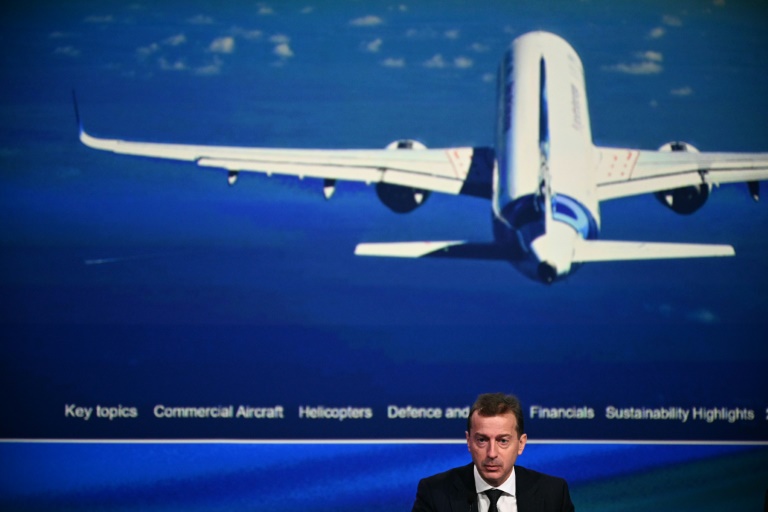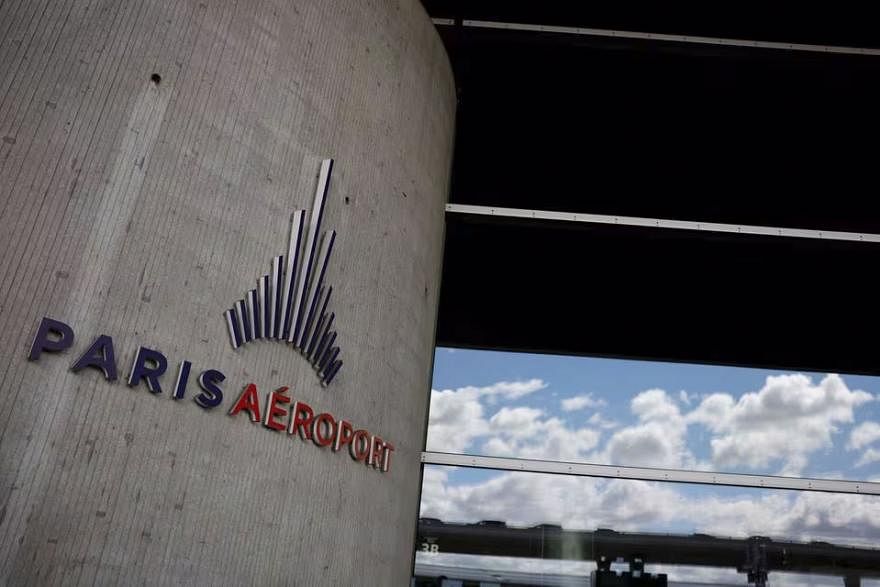European aviation giant Airbus on Thursday posted an 11 percent drop in net profit to 3.8 billion euros ($4.1 billion) in 2023, with past charges for its space business cutting into earnings.
The group, which delivered 735 aircraft last year despite supply chain problems, said it plans to deliver about 800 in 2024. It reached the mark in 2018 before the pandemic battered the aviation industry.
And despite the space problems, the profit figure was the third biggest announced by Airbus after its 4.2 billion-euro bumper year in 2022.
“In 2023 we recorded strong order intake across all our businesses and we delivered on our commitments. This was a significant achievement given the complexity of the operating environment,” said Airbus chief executive Guillaume Faury.
The group said it had received orders for 2,094 aircraft in 2023, beating a previous record dating back to 2013.
Its A320 and long-haul A350 jets led the order list.
Group revenues increased by 11 percent to 65.4 billion euros, with commercial aircraft revenues increasing 15 percent.
The showing came in a week where rival Boeing indicated it expects a tough first quarter as it slows operations amid heightened regulatory scrutiny and compensates airlines for the recent 737 MAX grounding.
Boeing suffered a $2.2 billion loss last year and has had more bad news with a near-catastrophic Alaska Airlines incident on January 5 that resulted in an emergency landing of a 737 MAX 9.
The Federal Aviation Administration authorities grounded more than 170 MAX 9 planes for about three weeks with the same configuration as the plane involved in the incident, where a door panel on the fuselage blew out.
The FAA has said it will freeze Boeing’s 737 MAX output at 38 per month and not permit increased volumes until it demonstrates improved quality control.
Airbus said although some of its some 18,000 suppliers were still feeling the lingering effects of the pandemic it was confident on production outlook notably for its A320 and A321, expecting to lift monthly output from an average 48 last year to 75 by 2026.
The company also expects to lift monthly production of the narrow body A220 from six to 14 and of the A350 wide body from five to ten a month.
These new planes should enable airlines to cope with the increase in air traffic and renew their fleets deploying models that consume less fuel and therefore emit less CO2.
Airbus Helicopters’ deliveries were stable at 346 units, against 344 in 2022, with revenues rising four percent. Revenues at Airbus Defence and Space increased two percent,
But profits at the space division fell 40 percent to 229 million euros because of a one-off 600 million charge.
Facing stiff competition from US-rival SpaceX, Airbus has been hit by development delays and high costs for its geostationary satellites, according to a source following developments.
Space division head Jean-Marc Nasr is to be replaced from March 1 by Alain Faure, arriving from Airbus Operations.
With nearly 8,600 planes in total on order, available delivery slots are drying up and Airbus customers are set to have to wait until the end of the decade to take delivery of single-aisle aircraft and 2028 for long-haul aircraft, according to Christian Scherer, head of Airbus Commercial Aircraft.
Faury handed Scherer the reins of the Commercial Aircraft division to devote more time to Airbus’ global strategy, notably to space and defence activities, undergoimng reorganisation.







